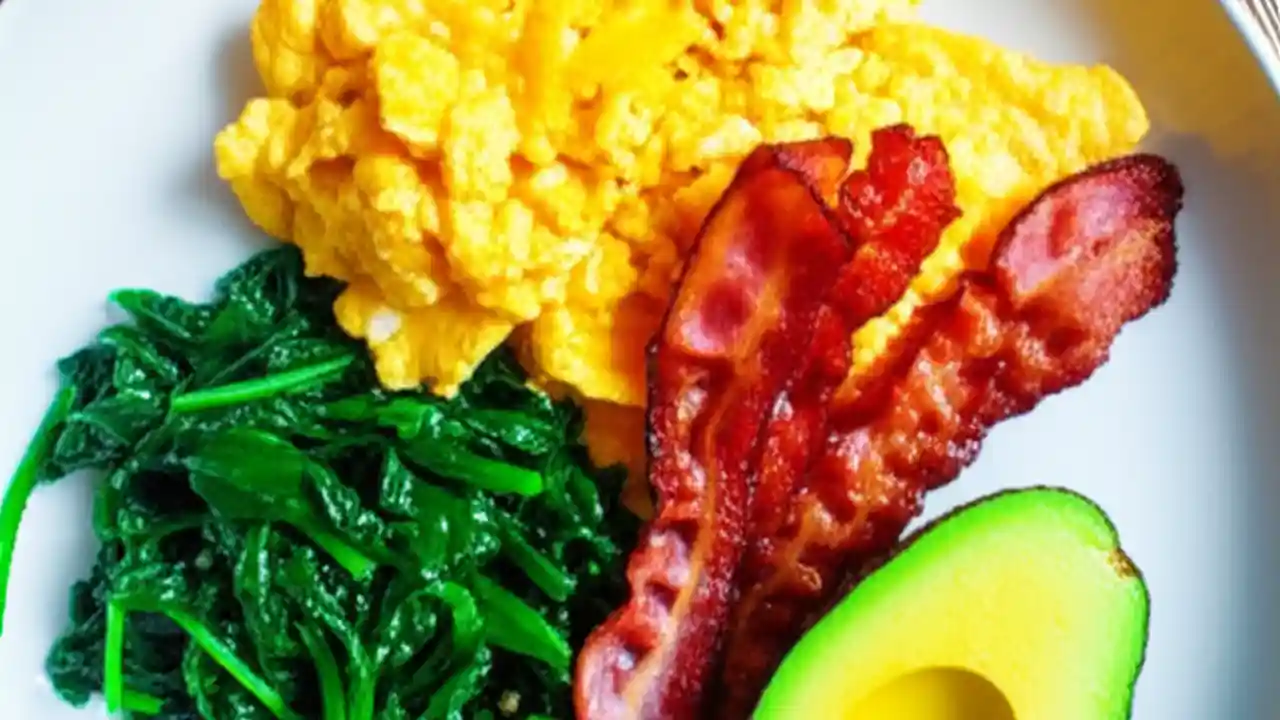Starting your day with a morning walk is one of the most powerful yet simple habits you can adopt, offering a profound boost to your physical energy, metabolism, and mental clarity that lasts the entire day. It’s more than just exercise; it’s a daily ritual that sets a positive and productive tone for everything that follows.
For years, clients have asked me for the “one thing” they can do for their overall well-being. My answer is almost always the same: start walking in the morning. This article will explore the immense benefits of a morning walk, from its impact on weight loss to its incredible effects on your mental health. We’ll cover everything you need to know to make this simple step a transformative part of your life.
Table of Contents
The Physical Health Rewards of a Morning Stroll
The physical changes that come from a consistent morning walk are both immediate and long-lasting. You’re not just moving your body; you’re kickstarting complex systems that govern your health, energy, and even how you age. It’s a low-impact activity with a high-impact return.
What are the key physical benefits of a morning walk?
Think of your morning walk as a gentle wake-up call for your entire body. It gets the blood flowing, energizes your muscles, and sets you up for a healthier day. Here are some of the most significant physical perks:
- Enhanced Cardiovascular Health: Regular walking strengthens your heart. It helps lower blood pressure, improve blood circulation, and reduce the risk of heart disease and stroke. It’s like daily maintenance for your body’s most important muscle.
- Stronger Bones and Joints: Unlike high-impact exercises, walking is kind to your joints. It can increase bone density, helping to prevent osteoporosis, and improve lubrication in joints, reducing stiffness and arthritis pain.
- Improved Digestion: A morning walk can help regulate your digestive system. The gentle, rhythmic movement stimulates your abdominal muscles, promoting regular bowel movements and reducing bloating.
- Boosted Immune Function: Studies have shown that moderate exercise, like a daily walk, can bolster your immune system. This means you might find yourself catching fewer colds and other common illnesses.
- Better Blood Sugar Control: Walking helps your muscles use more glucose, which can lower your blood sugar levels. A walk after a meal is particularly effective, but a morning walk helps set the stage for better glucose management all day.
Can a morning walk really help with weight loss?
Absolutely. While it might not burn calories as fast as a high-intensity sprint, its power for weight loss lies in its consistency and its metabolic effects. I’ve seen countless people achieve sustainable weight loss by making this their cornerstone habit.
First, it burns calories directly. A 30-minute brisk walk can burn between 100-200 calories, depending on your weight and pace. That might not sound like a lot, but it adds up to 700-1400 calories a week—a significant deficit over time without the burnout of more intense routines.
Second, it helps control your appetite. A morning walk can curb cravings for unhealthy, high-calorie foods later in the day. It helps regulate appetite hormones like ghrelin, making you feel more satisfied and in control of your food choices.
Does walking in the morning boost your metabolism all day?
Yes, this is one of the most exciting benefits. When you exercise, your body burns calories. But the magic happens *after* you stop. This is called excess post-exercise oxygen consumption (EPOC), or the “afterburn effect.”
While the afterburn from a low-intensity walk isn’t as massive as from a HIIT session, it’s still significant. By kickstarting your metabolism first thing in the morning, you create a small but sustained increase in your metabolic rate that lasts for several hours. This means you’ll be burning slightly more calories throughout the day, even while sitting at your desk.
What happens to your body if you walk every morning for a month?
Committing to a daily morning walk for 30 days can create a remarkable transformation. It’s a fantastic experiment to try for yourself. Here’s a realistic timeline of what you can expect:
| Timeframe | Expected Changes & Feelings |
|---|---|
| Week 1 | You’ll likely feel more energized immediately after your walks. You might feel some initial muscle soreness if you’ve been sedentary. Sleep quality may start to improve by the end of the week. |
| Week 2 | The habit starts to feel more automatic. Your energy levels are more stable throughout the day. You’ll notice your mood is consistently better, and you feel less stressed. The walk becomes something you look forward to. |
| Week 3 | You’ll feel physically stronger. Hills that seemed daunting are now easier. Your clothes might start to fit a little looser. Your mental clarity and focus at work or home are noticeably sharper. |
| Week 4 | This is now a solid part of your identity. You feel “off” on days you miss it. Friends or family may comment that you seem happier or healthier. You’ve established a powerful positive feedback loop of energy, mood, and accomplishment. |
Unlocking Mental Clarity and Mood Boosts
The impact of a morning walk on your mind is just as profound as its effect on your body. In a world of constant digital noise and pressure, this simple act of putting one foot in front of the other can be a radical form of self-care.
How does a morning walk impact your mental health?
It works in several ways. First, physical activity triggers the release of endorphins, which are natural mood-lifters and pain relievers. This is the source of that “feel-good” sensation after a walk.
Second, it helps reduce levels of the stress hormone cortisol. A morning walk, especially in a natural setting like a park, can lower cortisol and calm your nervous system, setting a peaceful tone for the day instead of a frantic one.
Finally, exposure to natural morning light is crucial for regulating your circadian rhythm. This not only helps you sleep better at night but also directly combats symptoms of seasonal affective disorder (SAD) and improves overall mood. It’s a natural antidepressant with no side effects.
Can a morning walk improve focus and productivity?
Yes, and it’s a game-changer for anyone with a demanding job or busy life. A brisk walk increases blood flow to the brain, delivering more oxygen and nutrients. This has been shown to improve cognitive function, memory, and creative thinking.
I often tell my clients to think of their morning walk as “problem-solving time.” Instead of staring at a screen, you let your mind wander as you walk. This state of gentle focus often allows solutions to pop into your head unexpectedly. You arrive at your desk not just awake, but mentally primed and ready to tackle your most important tasks.
Is it okay to listen to music or podcasts during my walk?
This is a great question, and the answer depends on your goal for the walk.
- For Motivation: If you’re just starting out or need a push, an upbeat playlist or an engaging podcast can be a fantastic tool. It can make the time fly by and help you associate walking with something you enjoy.
- For Mindfulness and Stress Reduction: If your primary goal is to clear your head and reduce anxiety, try walking without any audio input. Pay attention to the sounds of your footsteps, the birds, the feeling of the breeze. This turns your walk into a meditative practice, amplifying its mental health benefits.
My advice? Mix it up! Use music on days you feel sluggish and go silent on days you feel overwhelmed. There’s no single right way to do it.
Practical Guide to Your Perfect Morning Walk
Knowing the benefits is one thing; putting it into practice is another. Let’s get into the nitty-gritty of making your morning walk a seamless and enjoyable part of your routine.
How long should a morning walk be to see benefits?
The good news is that you don’t need to block out hours of your day. Consistency is far more important than duration. Even a short walk is infinitely better than no walk at all. Here’s a simple guide:
| Duration | Primary Benefit | Ideal For |
|---|---|---|
| 10-15 Minutes | Mood Boost & Mental Clarity | Beginners or those with very tight schedules. A great starting point. |
| 20-30 Minutes | Cardiovascular Health & Weight Management | The “sweet spot” for most people to get significant physical and mental benefits. |
| 45-60 Minutes | Enhanced Endurance & Deeper Stress Reduction | Those with more time, focusing on significant fitness goals or deep mental decompression. |
Is it better to walk before or after breakfast?
This is a classic debate, and both approaches have merit. The best choice depends on your body and your goals. I’ve had clients succeed with both methods.
| Walking Before Breakfast (Fasted State) | Walking After Breakfast (Fed State) | |
|---|---|---|
| Pros | May burn a higher percentage of fat for fuel. Can feel invigorating and “clean.” Doesn’t require waiting for food to digest. | Provides more energy for a faster, more vigorous walk. Helps stabilize blood sugar after your meal. |
| Cons | May feel low on energy or dizzy for some people. Might lead to muscle loss if done at high intensity without proper nutrition. | You need to wait 30-60 minutes after eating to avoid digestive discomfort. May feel sluggish if you’ve eaten a heavy meal. |
| Best For | People focused on fat loss who feel good exercising on an empty stomach. | Diabetics, people who feel weak without food, or those wanting to perform at a higher intensity. |
The most important factor is what you can stick with. Try both and see what feels best for your body.
How can I stay motivated for a daily morning walk?
Motivation can be fleeting, which is why building a habit is so crucial. Here are some strategies that work:
- Prepare the Night Before: Lay out your walking clothes, shoes, and socks before you go to bed. This removes one major point of friction in the morning. Your future self will thank you.
- Start Small: Don’t commit to a 60-minute walk on day one. Commit to just 10 minutes. The goal is to make it so easy you can’t say no. You can always add more time as you go.
- Find a Partner: Accountability is a powerful motivator. Walking with a friend, partner, or neighbor makes it a social activity and makes you less likely to skip it.
- Track Your Progress: Use a simple app or a calendar on the wall to mark off every day you walk. Seeing your streak grow is incredibly rewarding and makes you want to keep it going.
What are some essential safety tips for early morning walks?
Safety should always be a priority, especially when it’s dark out.
- Be Visible: Wear bright or reflective clothing. Consider a headlamp or carrying a small flashlight to see and be seen.
- Stay Aware: This is a time to ditch the noise-canceling headphones. Keep the volume low or use only one earbud so you can hear approaching cars, cyclists, or people.
- Plan Your Route: Stick to well-lit, familiar paths. Let someone know your route and when you expect to be back, especially if you’re trying a new one.
- Carry Your Phone: Make sure your phone is fully charged and with you in case of an emergency.
Morning Walk vs. Other Exercises: A Friendly Comparison
How does a simple walk stack up against other forms of exercise? It’s not about which is “best” overall, but which is best for you, right now.
Is a morning walk better than an evening walk?
Both are great, but the morning walk often has a slight edge for a few reasons. A morning walk kickstarts your metabolism for the day ahead and exposes you to morning light, which sets your sleep-wake cycle. For many, it’s also easier to be consistent in the morning before the day’s tasks and excuses pile up.
An evening walk is excellent for de-stressing after a long day and can aid digestion after dinner. However, for some people, exercising too close to bedtime can interfere with sleep. Again, the best time to walk is the time you’ll actually do it consistently.
Morning walk vs. gym workout: Which one is right for me?
This is a common question. They serve different but complementary purposes.
| Factor | Morning Walk | Gym Workout |
|---|---|---|
| Accessibility | Extremely high. Just open your door and go. | Requires a membership, travel time, and potentially waiting for equipment. |
| Cost | Free. | Monthly fees, potential for personal training costs. |
| Intensity | Low to moderate. Excellent for cardiovascular health and consistency. | Can be low, moderate, or high. Better for building significant muscle mass and high-intensity training. |
| Mental Benefit | Excellent for stress reduction, mindfulness, and creative thinking, especially outdoors. | Great for stress relief through intense physical exertion. Can be a social environment. |
You don’t have to choose! A morning walk can be your daily foundation, with gym workouts added 2-3 times a week for strength training.
Should I be running instead of walking in the morning?
Running is a fantastic, high-intensity exercise, but it’s not inherently “better” than walking. It’s just different. Running burns more calories per minute and provides a more intense cardiovascular workout. However, it also puts significantly more stress on your joints, increasing the risk of injury.
Walking is the champion of sustainability. It’s an activity you can do every single day, for the rest of your life, with a very low risk of injury. For the vast majority of people looking for long-term health, mood enhancement, and sustainable weight management, walking is the superior choice. You can always incorporate short jogging intervals into your walk as your fitness improves.
Conclusion
The benefits of a morning walk are clear, profound, and accessible to nearly everyone. It’s a simple investment of time that pays massive dividends in physical health, mental clarity, and overall happiness. It’s not about a grueling workout; it’s about the gentle, consistent act of showing up for yourself, day after day.
There is no other single habit that costs so little but delivers so much. So, I encourage you to try it. Set your alarm just 15 minutes earlier tomorrow. Put on your shoes, step outside, and just walk. See how you feel. You might just find it’s the best part of your day. If this guide was helpful, please share it with a friend you’d love to walk with!












